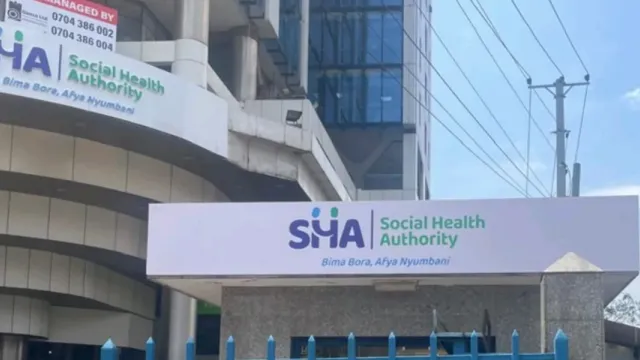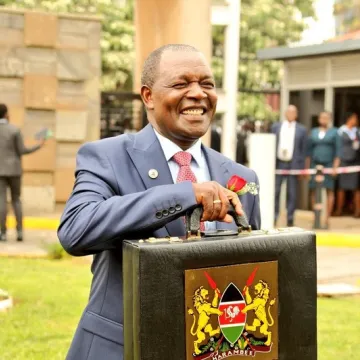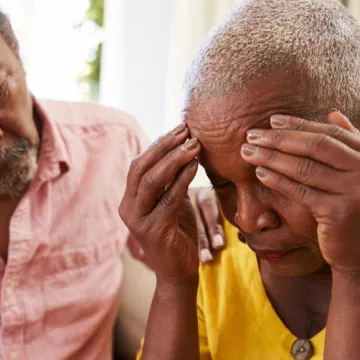Why you may make cash payments in private hospitals from next week

Since its introduction in October 2024, Kenya's new healthcare scheme has been rocked with endless glitches as Kenyans complain of its inefficiency.
All hospitals under the Rural and Urban Private Hospitals Association of Kenya (RUPHA) have announced plans to withhold treatment for civil servants under the Medical Administrator Kenya Limited (MAKL) starting Monday, February 24, until their debt is cleared.
This means that all teachers, police officers and their dependents across the country using insurance backed by government institutions such as the Teachers Service Commission (TSC) will not receive treatment.
“We will stop providing medical services to police and teachers using the government insurance from Monday,” announced Rev Joseph Kariuki, Deputy Chairperson, RUPHA, on Thursday.
He added, “MAKL has failed to pay hospitals for over 11 months, forced hospitals to accept arbitrary and unexplained discounts, and favored its own clinics in an uncompetitive and unethical manner.”
The association noted that unless the government clears the pending debts, its member hospitals will not resume treating civil servants because the insurer has not paid for services done in the last year.
“Without urgent government intervention, teachers and police officers will be left without quality healthcare services, further straining public hospitals already at breaking point,” RUPHA chairperson, Dr. Brian Lishenga, added.
The association also announced that it will suspend offering Social Health Authority (SHA) services starting on Monday next week citing continued ignorance to address piling system challenges.
Speaking to the media on Thursday, the association's chairperson Dr. Brian Lishenga stated that challenges surrounding the new healthcare system have been ignored, endangering the lives of patients.
The most common challenges include prolonged system downtime, delays in the One-Time Password (OTP) verification, and an inability to track claim approvals—issues that have worsened over the past month.
For instance, Dr. Lishenga revealed that 54 percent of hospitals have not received payments from SHA, while 89 percent of facilities have reported SHA portal failures. What’s more, 83 percent of hospitals in the country have reported serious difficulties in verifying patient eligibility due to SHA's system glitches.
"We have unpaid debt dating back to 2017, hospitals are facing bank defaults, we have stock out of essential medicines, and many consultants haven't been paid for years," he stated.
RUPHA now wants the government to settle in full the KES30 billion debt accrued under the defunct NHIF. It also demands the Ministry of Health to revise and streamline the SHA outpatient reimbursement model and ensure fair and timely payment under MAKL.
Since its introduction in October 2024, the new healthcare scheme has been rocked with endless glitches as Kenyans complain of its inefficiency.
RUPHA then advised the public that anyone seeking medical service under SHA from Monday, 24th February 2025, to consider settling their bills in cash at private and faith-based hospitals, saying that it has become unavoidable to safeguard patient care and hospital sustainability.
“We are committed to serving the public, but hospitals cannot continue to provide services in an environment that jeopardizes patient safety and financial stability. We stand ready to work with the government if real solutions are presented. However, we cannot continue subsidizing a broken system at the cost of patient safety and hospital sustainability,” explained Dr. Lishenga.





